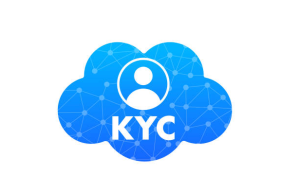
In today’s fast-paced digital world, efficient and accurate delivery of goods and services is paramount for businesses across various industries. Whether you’re an e-commerce giant shipping products worldwide or a local service provider reaching out to customers in your vicinity, ensuring that packages and correspondences reach the intended recipients promptly is crucial for customer satisfaction and retention. However, the delivery accuracy hinges greatly on the correctness of the addresses provided. Inaccurate addresses lead to delivery delays and additional costs but also tarnish the reputation of businesses. Fortunately, with the advent of address verification software and APIs, companies now have powerful tools at their disposal to improve deliverability and streamline operations.
Address verification software utilizes advanced algorithms and databases to validate and standardize addresses, ensuring they are accurate and complete. By integrating an API to verify any address into their systems, businesses can automate the verification process, minimizing human errors and optimizing efficiency. Whether it’s validating addresses entered by customers during online purchases or ensuring accuracy in the addresses stored within databases, address verification APIs offer a seamless solution to enhance deliverability.
One of the key advantages of using address verification software is its ability to standardize addresses according to postal standards. Addresses often vary in format and structure, posing a challenge for delivery systems. By standardizing addresses, the software ensures that they comply with postal regulations, making them easily recognizable by delivery carriers. This not only reduces the likelihood of misdeliveries but also eliminates the need for manual intervention to correct address discrepancies.
Furthermore, address verification software can perform real-time validation, instantly flagging inaccurate or incomplete addresses at entry. This feature is particularly valuable for e-commerce platforms where customers input their shipping addresses during checkout. By alerting users to potential address errors in real-time, businesses can significantly reduce the number of undeliverable packages and minimize the associated costs and inconveniences.
Another benefit of address verification software is its ability to enhance data quality. Inaccurate addresses not only impact deliverability but also compromise the integrity of customer databases. By regularly verifying and updating addresses, businesses can maintain clean and reliable databases, improving the effectiveness of marketing campaigns, and communication strategies. Moreover, accurate address data facilitates better analytics and decision-making, enabling businesses to identify trends, target demographics more effectively, and optimize resource allocation.
Address verification software also plays a crucial role in fraud prevention and identity verification. Inaccurate addresses can be a red flag for fraudulent activities, such as identity theft or unauthorized transactions. By verifying the authenticity of addresses against reputable databases, businesses can mitigate the risk of fraud and ensure the security of their operations. Additionally, address verification can be integrated into identity verification processes, adding an extra layer of security to online transactions and account registrations.
For businesses operating globally, address verification software offers the added advantage of international address validation. International shipping comes with its own set of challenges, including varying address formats, language barriers, and postal code discrepancies. Address verification APIs can validate addresses across different countries and regions, ensuring compliance with local postal standards and improving the accuracy of international shipments. This not only enhances deliverability but also expands the reach of businesses into new markets, driving growth and revenue.
When selecting APIs or software to verify addresses, businesses should consider factors such as accuracy, speed, scalability, and ease of integration. Look for providers that offer comprehensive address databases, frequent updates, and robust validation algorithms to ensure the highest level of accuracy. Additionally, choose solutions that can seamlessly integrate with existing systems and workflows, minimizing disruption and maximizing efficiency.
In conclusion, address verification software and APIs are powerful tools that can significantly improve deliverability for businesses of all sizes and industries. By automating the address verification process, businesses can enhance the accuracy of deliveries, reduce costs, prevent fraud, and maintain clean and reliable databases. With the rise of e-commerce and global trade, the importance of address verification in ensuring seamless and efficient logistics cannot be overstated. By leveraging the capabilities of address verification software, businesses can stay ahead of the competition and deliver exceptional customer experiences in today’s competitive marketplace.





